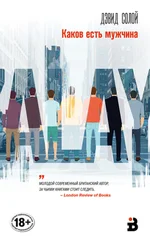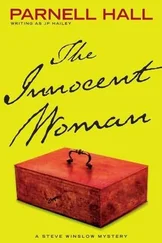Was he disappointed?
Perhaps ‘disappointed’ was too strong a word.
‘No,’ he said.
‘I’m sure you were. And what about your wife?’ she said. ‘Did you like her the first time you saw her?’
He said he had no memory of the first time he had seen her. She would have been very young.
‘How young?’
‘Twelve, I suppose.’
‘And how old were you?’
‘Um …’ For a second he seemed not to understand the question. Then he said, ‘The same age.’
* * *
One afternoon Mikhalkov summoned him to his office. Mikhalkov had started to smoke a pipe, a substantial black object. When Aleksandr sat down, it had extinguished itself, and he sat there waiting while Mikhalkov huffed and puffed and struck matches. ‘Where have you been?’ Mikhalkov said eventually, with his teeth on its stem. ‘I’ve been trying to get hold of you all day.’
‘I went to see Yudin.’
Mikhalkov himself had told him to do this.
‘Oh yes? How is he?’
‘He’s the same. The same as he was.’
Puffing with the focused urgency of a doctor losing a patient, Mikhalkov said nothing for a few seconds. ‘The same, eh?’
‘Yes.’
‘Oh well.’
That morning, more through luck than judgement – it was not easy to find people on those nameless tracks, in those unnumbered huts – he had found the place where Yudin lived with his mother. When he got out of the Pobeda, the stench was over-powering. There was an open sewer nearby. It was so sickening that he was tempted to hold his handkerchief over his nose. He did not. There were some people there, watching him. The wind fussed with various scraps of flapping jetsam, and tugged at some wire fencing with a monotonous tinging sound. The interior of the hut had its own unpleasant odour. Near the entrance was a space where newspapers were pinned on the wall, and there were some tattered books. Then the soiled sheets on strings and other makeshift partitions started – the hut was home to several dozen people, though in the middle of the day very few of them were there. Moving through these subdivisions, shoving them aside in light the colour of cobwebs, he stumbled on Yudin. For a second he was stunned – Yudin was sitting on the floor and seemed to be putting together some sort of small kerosene stove. ‘He wants to help,’ his mother said. ‘When he’s tried I’ll do it.’ And he saw that Yudin showed no sign of even knowing what the pieces of the stove were, and had no hope of successfully putting them together.
His mother was surprisingly old. She eyed Aleksandr suspiciously when he told her who he was. Her eyes were leathery slits, and she was smoking a sort of cheroot made of newspaper. Yudin smelled terrible – the filthy sour-milk smell of someone who has not undressed, let alone washed, for weeks.
‘There’s been,’ Mikhalkov said, out of the side of his mouth, ‘some news. Important. I’m telling everyone individually how it’s going to affect them. General Veklishev is leaving us. He’s off to Moscow. A job at the ministry. A whole new world of shopping for madame . He’s over the moon, but nervous. I’ve been asked to take over here.’
This was not surprising. It was well known that Veklishev was looking for a Moscow job, well known that Mikhalkov hoped to succeed him. Aleksandr said he was pleased for him – Mikhalkov smiled, and in his smile, which was warm, Aleksandr saw, not for the first time, the extent to which his suave superior thought him unworldly, even slightly simple. He knew that this was what Mikhalkov thought of him. He also knew that he liked him, that in unimportant ways he even looked up to him. So he was not surprised, either, when he said, ‘I’m putting you in for promotion.’
‘Thank you.’
Mikhalkov smiled once more, in the green upward illumination of his desk light. ‘You did well with Lozovsky,’ he said. ‘It was a sensitive situation.’
He went to his office and lay on the chaise longue. He wondered what Mikhalkov had meant when he said, ‘It was a sensitive situation.’ He wished he had asked him. He had not wanted to seem naïve. Slowly the light faded, and lying there, hearing the natter of typewriters, he thought of Lozovsky, of the events leading up to his arrest, and of the part he had played in them.
His office was dark. Though it had been dark for some time, he had not switched on the electric light. When he finally stood up and did so, it was only to take his things and leave. For the first time in two weeks, he did not go to the flat on Karl Libknekht Street. He went home and slept on the divan. In fact he did not sleep much. In the morning he had to use Zalesky’s razor, and when he had shaved, he sat for a long time on the divan, worrying a loose tile of parquet with the toe of his shoe. The room looked strange to him, stripped of Irina’s things. He would be leaving it himself soon. His promotion included new privileges, one of which was his own flat. There was a place on Studencheskaya Street, in a quiet suburb near the lake.
When he told her, later the same day, that he did not think they should see each other any more, first she just said, ‘Okay,’ as if it was a small thing. She seemed unsurprised. Then, for a long time, she was silent. On the table, still wrapped in tissue paper, was the dry-cleaning he had put there a few minutes earlier – some of her winter things that she had taken with her from Metelyev Log. She stared at it and smoothed the tissue paper with her fingers.
‘I’m sorry,’ he said.
She had been talking about his new flat. He had told her about it, and it seemed to be her assumption that she would move there with him. Things she said suggested this. For instance, she said she hoped there wouldn’t be too many mosquitoes in the summer since they seemed to have ‘a particular predilection’ for her blood. It was when she said this that he had said, with what immediately seemed a savage lack of preamble, that he did not think they should see each other any more. She stood next to the table staring at the dry-cleaning. With a sort of shrug, as if it hurt her pride to say it, she said, ‘Why?’
He did not understand exactly why. Only years later did he see that it was from this that he found the strength, in 1960, to say that he did not think Lozovsky was innocent, from this sacrifice.
IT IS KNOWN as ‘The Summit’ – two superpowers, meeting on equal terms in the autumn of 1972 to thrash out their differences. The Soviet Union and Canada. Or to be precise, the ice-hockey teams of those two nations. The series started in Montreal, and from there proceeded to Toronto, then to Winnipeg. The fourth match was in Vancouver, where the Canadians were whistled off the ice by their own fans, the Soviets having won a second time to put themselves 2–1 up with the four Moscow meetings to follow. And when they won the first of those meetings, on 22 September, their opponents found themselves far from home, with food poisoning in a Soviet hotel, and seemingly facing defeat. They stopped eating in the hotel. Their food was flown in from Canada, and they took their meals at the Canadian embassy. Of the next two matches Tarasov said, ‘They fought with the ferocity and intensity of trapped animals.’ They levelled the series, with one match left to play.
That match is today. Aleksandr waits in the twilight. When the series started, no one expected the Soviet Union to win a single match – if they succeeded in winning just one match it would be seen as a moral victory. The Canadians were professional sportsmen. The Soviets, steel workers and train drivers. So when the train drivers and steel workers won the first match in Montreal everyone was shocked – the players themselves seemed shocked that for long periods they had outplayed their opponents. And when the series moved to Moscow, with the steel workers and train drivers in the lead, some people started to think that they might even win it. Perhaps some people even started to think that they would win it. Aleksandr turns on the overhead light. Yes, perhaps some excitable people thought that it was more or less already won. And now? To lose now would be terrible. To lose when victory had seemed there for the taking.
Читать дальше












